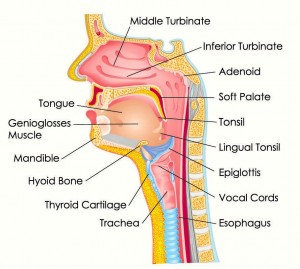Exploring the Area of Otolaryngology: What to Expect When You Speak With an ENT
Otolaryngology, generally described as ENT, encompasses the diagnosis and treatment of throat, nose, and ear conditions. For those experiencing relevant issues, consulting an ENT specialist can supply quality and relief. Comprehending what to expect during such assessments is essential for reliable communication and care. This introduction will certainly detail crucial elements of the ENT experience, including common reasons for gos to and the processes involved in diagnosis and therapy.

Recognizing Otolaryngology: An Overview
Otolaryngology, frequently described as ENT (Throat, ear, and nose) medication, is a customized branch of medicine that focuses on the diagnosis and treatment of conditions impacting these important locations of the human body. This field encompasses a broad range of disorders, consisting of those associated to hearing, balance, breathing function, and speech. Otolaryngologists are educated to manage both surgical and clinical treatments, using sophisticated methods and technologies. Their expertise extends beyond standard conditions, resolving issues such as allergies, sinus infections, and hearing loss. Additionally, they play a critical duty in the management of head and neck cancers, giving complete treatment customized to individual person requirements. Generally, otolaryngology remains crucial for keeping health and wellness and lifestyle in afflicted people.
Common Reasons to See an ENT Specialist
Numerous individuals seek the know-how of an ENT professional for a variety of factors, mirroring the diverse nature of problems that impact the ear, nose, and throat. Common issues consist of persistent sinus problems, which usually causes consistent nasal blockage and facial discomfort. Allergic reactions and their associated signs and symptoms, such as sneezing and itching, likewise motivate visits to these specialists (ENT surgery). Hearing loss, whether progressive or unexpected, is an additional significant reason for assessment. On top of that, people may seek assessment for throat conditions, consisting of relentless hoarseness or ingesting problems. Rest apnea, identified by disturbed breathing throughout rest, is often attended to by ENT specialists. Each of these conditions highlights the significance of specialized treatment in taking care of complex ENT-related health issues
Preparing for Your ENT Visit
When getting ready for an ENT visit, it is vital to collect appropriate information and take into consideration any type of certain worries. People ought to compile a thorough clinical background, consisting of previous ear, nose, or throat problems, surgical procedures, and current medications. Documenting signs and symptoms-- such as intensity, regularity, and period-- can supply valuable insights for the ENT specialist. Furthermore, individuals ought to prepare a listing of questions they want to ask, ensuring that all worries are dealt with throughout the go to. Bringing along any type of pertinent medical records or examination results can even more assist the ENT in understanding the person's condition. People must validate their appointment details, consisting of day, time, and location, to decrease any final confusion. Proper prep work can enhance the effectiveness of the appointment and cause better end results.
What to Anticipate During the Appointment
As the examination starts, the person can anticipate to take part in a detailed discussion with the ENT specialist regarding their signs and symptoms and clinical background. The expert will ask about the period, regularity, and severity of symptoms such as hearing loss, nasal blockage, or aching throat. In addition, the individual's previous clinical problems, medications, and any type of appropriate household history will certainly be examined, assisting the specialist in creating a full understanding of the patient's wellness. The ENT may additionally ask about way of living elements, such as direct exposure to allergens or toxic irritants. This open discussion establishes a foundation for the consultation, making sure that the person's worries are dealt with and establishing the phase for any type of needed analyses or referrals for treatment.
Analysis Examinations and Treatments in Otolaryngology
A series of diagnostic tests and treatments are important in otolaryngology to precisely review and detect conditions affecting the ear, nose, and throat. Usual examinations consist of audiometry, which determines hearing feature, and tympanometry, assessing center ear stress. Nasal endoscopy enables visualization of the nasal passages and sinuses, while laryngoscopy examines the throat and singing cords. Imaging methods, such as CT scans and MRIs, offer in-depth sights of head and neck frameworks. Allergic reaction testing may additionally be performed to determine triggers for sinus or respiratory concerns. These analysis tools enable ENT professionals to develop a thorough understanding of individuals' problems, making certain tailored and efficient management plans. Correct medical diagnosis is necessary for effective treatment outcomes in otolaryngology.
Treatment Options Used by ENT Specialists
ENT specialists use a selection of therapy alternatives customized to resolve specific problems affecting the throat, nose, and ear. These treatments vary from conservative approaches, such as medication and way of life adjustments, to even more intrusive treatments. Allergies may be managed with antihistamines or immunotherapy, while chronic sinusitis could require nasal corticosteroids or sinus surgery. For hearing loss, ENT specialists usually advise hearing aids or surgical interventions like cochlear implants. In situations of throat problems, alternatives can consist of speech treatment or procedures to get rid of obstructions. In addition, they may give guidance for taking care of rest apnea, including making use of CPAP tools or surgical treatments. Overall, the goal is to improve people' lifestyle through customized treatment and efficient treatment methods.
When to Look For Follow-Up Treatment With an ENT
When to look for follow-up treatment with an ENT professional is crucial for managing ongoing signs or complications connected to throat, nose, and ear conditions, acknowledging. People must think about scheduling a follow-up appointment if signs and symptoms continue despite preliminary treatment, such as chronic ear discomfort, nasal congestion, or throat pain. Adjustments in hearing, balance issues, or uncommon nasal discharge may additionally warrant additional analysis. Furthermore, if a client experiences adverse effects from prescribed medications or has actually undertaken an operation, follow-up treatment is vital to check recuperation and attend to any issues. Prompt appointments can guarantee reliable administration of conditions, prevent potential problems, and provide assurance pertaining to one's health and wellness. Seeking follow-up treatment advertises proactive wellness administration in otolaryngology.
Frequently Asked Concerns

What Certifications Should I Try to find in an ENT Professional?
When looking for an ENT specialist, one must seek board accreditation, appropriate experience, and strong patient testimonials. Furthermore, efficient interaction skills and a thoughtful strategy can considerably boost the total therapy experience.
Just how Do I Select the Right ENT for My Requirements?
Choosing the ideal ENT professional involves assessing their certifications, experience, and individual testimonials (Voice). It is vital to consider their interaction design and strategy to therapy, ensuring they align with the individual's certain health requirements and choices
Exist Any Kind Of Risks Related To ENT Procedures?
The risks connected with ENT procedures may include infection, bleeding, anesthetic problems, and prospective damages to bordering structures. Patients must go over these threats with their doctor to recognize individual problems and guarantee informed decisions.
Just How Can I Take Care Of Anxiousness Before My ENT Visit?
To take care of anxiousness prior to a visit, individuals can practice deep breathing exercises, visualize favorable outcomes, prepare concerns ahead of time, and look for support from pals or household, fostering a sense of peace of mind and calmness.
What Should I Do if I Experience Adverse Effects From Therapy?
If adverse effects from therapy occur, the individual ought to promptly report them to their health care supplier. Changes to treatment or added interventions may be necessary to assure safety and security and performance in managing their problem - ENT surgery. As the examination begins, the person can anticipate to engage in a complete discussion with the ENT specialist about their signs and clinical background. These diagnostic tools make it possible for ENT professionals to develop a thorough understanding of individuals' problems, guaranteeing customized and effective administration strategies. ENT here professionals use a variety of treatment options tailored to attend to certain problems influencing the throat, ear, and nose. When looking for an ENT professional, one need to look for board certification, relevant experience, and strong individual reviews. Choosing the best ENT specialist involves reviewing their credentials, experience, and person testimonials
Comments on “Why ENT Clinics Provide Full-Spectrum Allergy and Sinus Care”